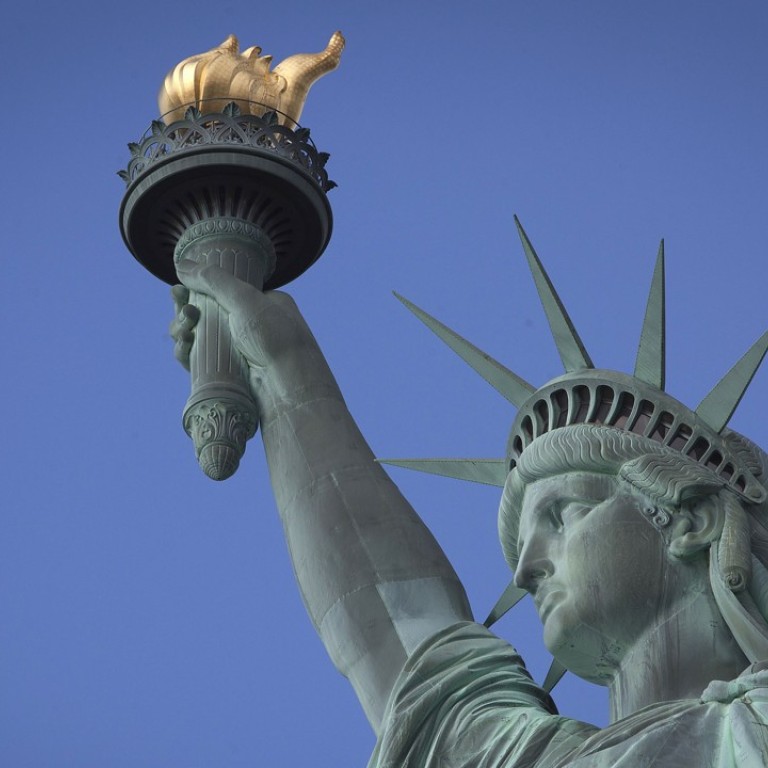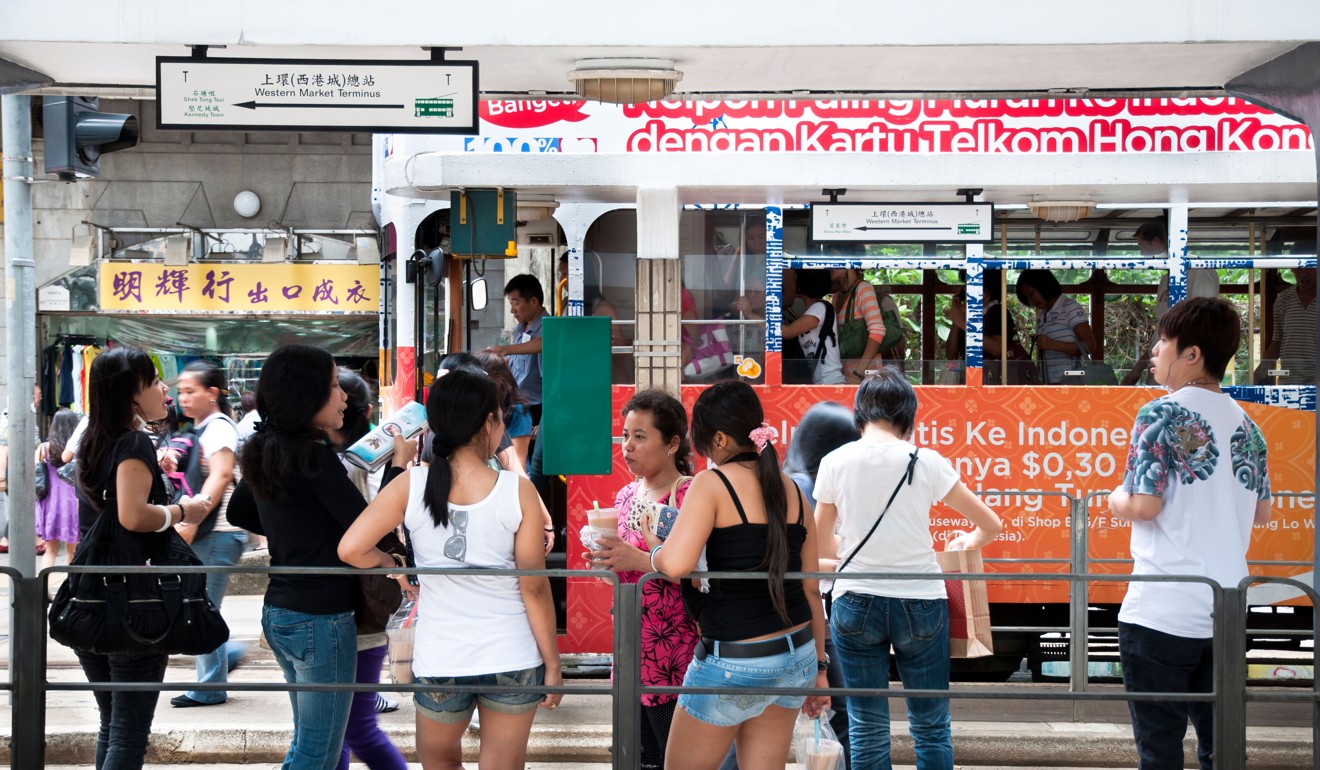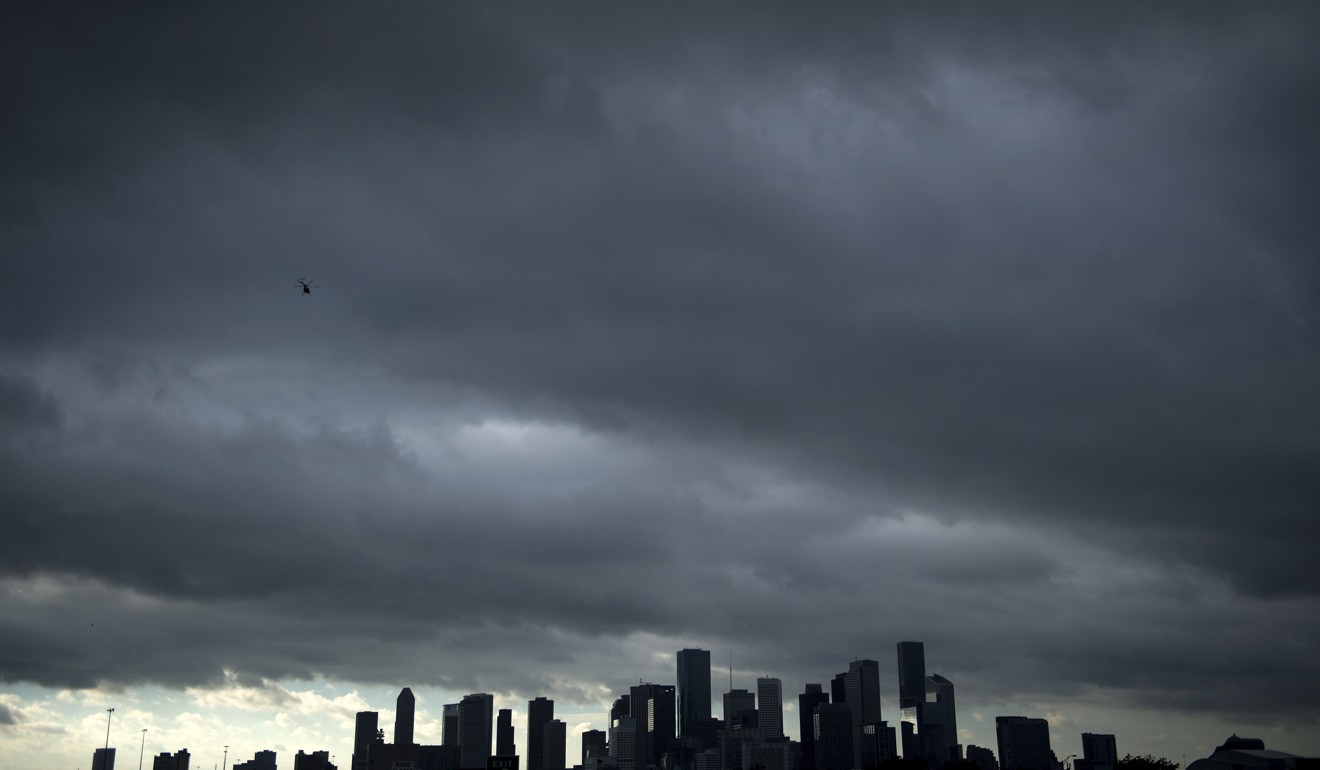
Promise of American dream used to lure Filipinos into hands of human traffickers, Hong Kong labour representative says
Jalilo Dela Torre, labour attaché at the Philippine consulate in Hong Kong, says unscrupulous recruiters tell victims that it will be easier to get a US visa if they live and work in countries like Russia or Turkey first
Filipinos’ pursuit of the American dream has been exploited by human traffickers to lure them to other countries like Russia and Turkey where they are left abandoned with their hopes quashed, according to the labour attaché at the Philippine consulate in Hong Kong.
“Traffickers use the US to lure the victims. They tell them that it’s easier to get a visa to the US if they work in Russia first,” said Jalilo Dela Torre, the Philippine Department of Labour and Employment’s top representative in the city, who serves some 190,000 Filipino domestic helpers.
“Filipinos look at the US as an attractive destination to work and live, because we were under the US for a long time,” he said.

Although there are trafficking networks that involve partners in different locations, including agencies in Hong Kong, Dela Torre said there had also been cases of “lone wolves” flying from Russia to the city “just to recruit, accept payments and accompany the victims to Russia”.
Workers may have to pay fees as high as HK$40,000 – nearly eight times the minimum wage of foreign domestic helpers in the city – HK$4,410.
Once in Moscow, and left with no other options, many try to find jobs by themselves, which usually takes six months to a year, Dela Torre said. There are some 5,000 Filipinos in Russia.
Dela Torre deferred comments about the issue to his colleagues in the US.
Human-trafficking fears after Filipino helper dies in mainland China
A spokesman for the Philippine consulate in Los Angeles said it had extended “all possible legal and consular assistance” to trafficked Filipinos who approached or were referred to them, but could not provide figures.
“We treat these cases with the utmost confidentiality,” he said.
The same spokesman noted that the Philippine government remained “committed to the protection of Filipino nationals from trafficking”.
Referring to the cases of domestic workers from the Philippines – and other nations – who have been exploited by diplomats and officials of international organisations in the US, he said the consulate could not comment. “Any abuse of said visa is a case for US law enforcement and immigration authorities.”
Hong Kong losing the fight against human trafficking, US report finds
A spokesman for the Philippine embassy in Washington DC also did not provide specific comments on the exploitation of Filipinos in the US. However, he said the Philippines had continued “to enhance and improve national policies, legislation and mechanisms to combat trafficking in persons”.
The Philippines was the only country in Southeast Asia placed on Tier 1 – the highest ranking – in the 2017 US State Department report on human trafficking.
In the US, several cities such as Houston, Texas, and Los Angeles, California have launched task forces to combat human trafficking. Public awareness campaigns in several languages are among the strategies that have been implemented in recent years.

She said the Philippines should provide enhanced pre-departure orientation, including education about the country of destination, the workers’ rights and how they can access help.
In addition, the government needs to take systematic action against agents that overcharge.
“There needs to be more of a crackdown on these agencies and on what they charge,” Kotecha said. Debt bondage problems are often carried to countries of destination such as the US.
“There is an immense responsibility on the states sending these workers – and taking their remittances – and in the countries accepting them and granting visas to these individuals who are going to work in industries known for exploitation,” she said.
Kotecha said greater collaboration between both countries, including in data sharing and assets tracing, was needed.
Hong Kong does not need laws against human trafficking, says government: victims are routinely criminalised, says Bar Association
She said that the US should be more proactive in carrying out labour inspections, particularly in “low visibility and high vulnerability” industries. And that it should take greater efforts to monitor working conditions and maintain regular contact with domestic workers brought to the US to work on households of diplomats and international organisation officers.
The city, which was placed for two consecutive years in the Tier Two watch list of the US State Department report, has been described as a destination and transit point for human trafficking. Advocates have long called for anti-human traffickings laws, but the government has repeatedly said the problem “is not prevalent in Hong Kong”.

